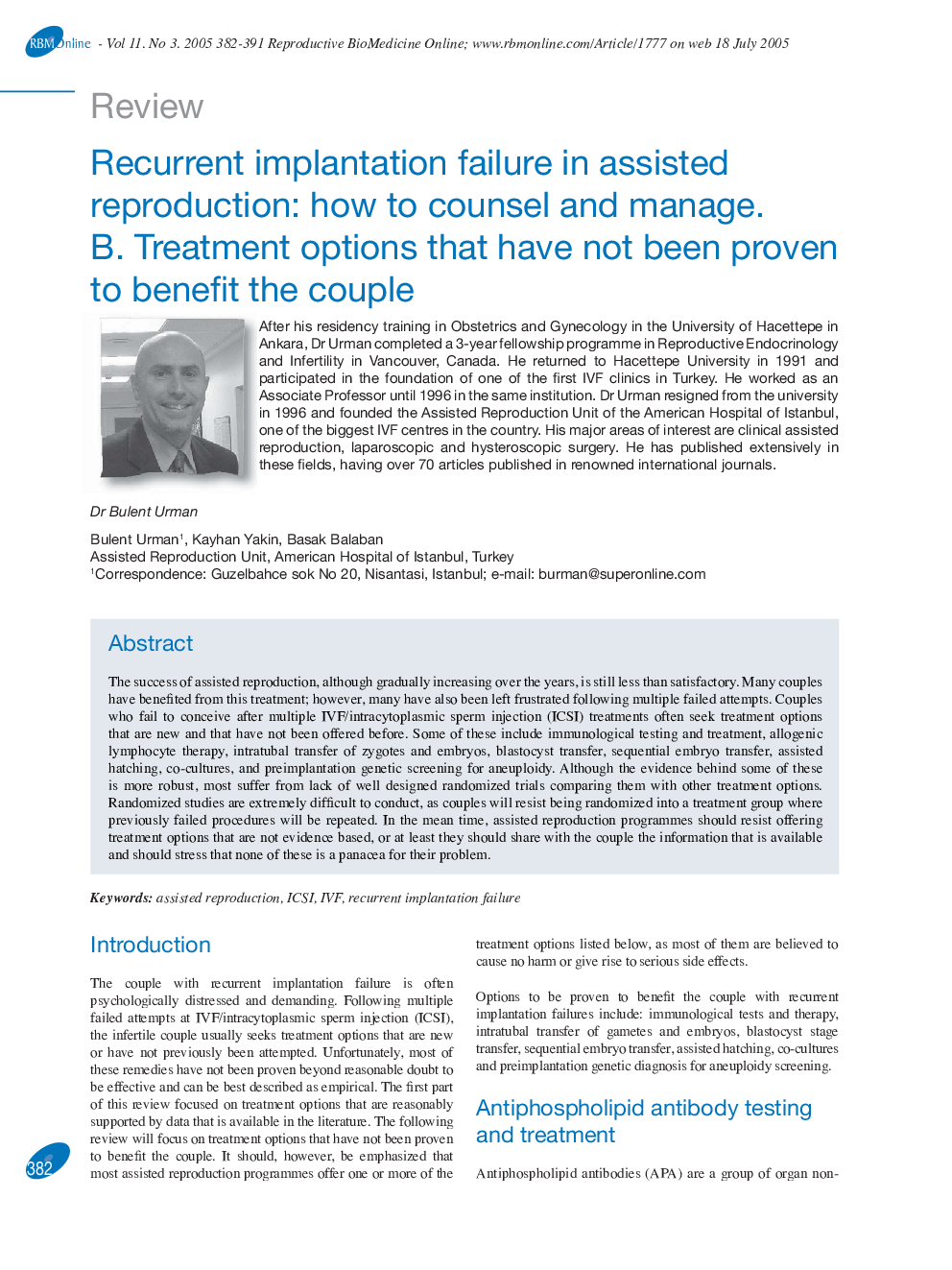| Article ID | Journal | Published Year | Pages | File Type |
|---|---|---|---|---|
| 9334696 | Reproductive BioMedicine Online | 2005 | 10 Pages |
Abstract
The success of assisted reproduction, although gradually increasing over the years, is still less than satisfactory. Many couples have benefited from this treatment; however, many have also been left frustrated following multiple failed attempts. Couples who fail to conceive after multiple IVF/intracytoplasmic sperm injection (ICSI) treatments often seek treatment options that are new and that have not been offered before. Some of these include immunological testing and treatment, allogenic lymphocyte therapy, intratubal transfer of zygotes and embryos, blastocyst transfer, sequential embryo transfer, assisted hatching, co-cultures, and preimplantation genetic screening for aneuploidy. Although the evidence behind some of these is more robust, most suffer from lack of well designed randomized trials comparing them with other treatment options. Randomized studies are extremely difficult to conduct, as couples will resist being randomized into a treatment group where previously failed procedures will be repeated. In the mean time, assisted reproduction programmes should resist offering treatment options that are not evidence based, or at least they should share with the couple the information that is available and should stress that none of these is a panacea for their problem.
Related Topics
Health Sciences
Medicine and Dentistry
Obstetrics, Gynecology and Women's Health
Authors
Bulent Urman, Kayhan Yakin, Basak Balaban,
